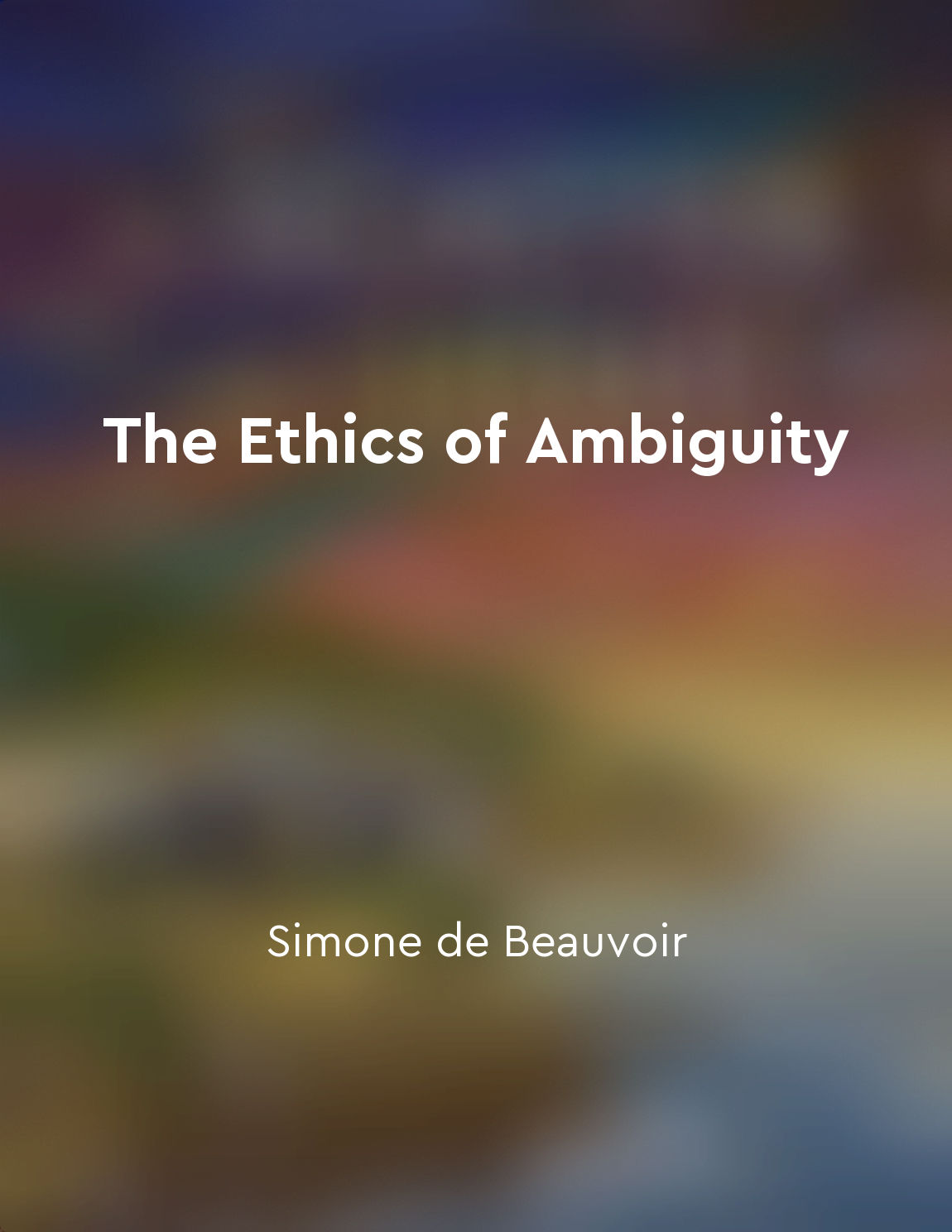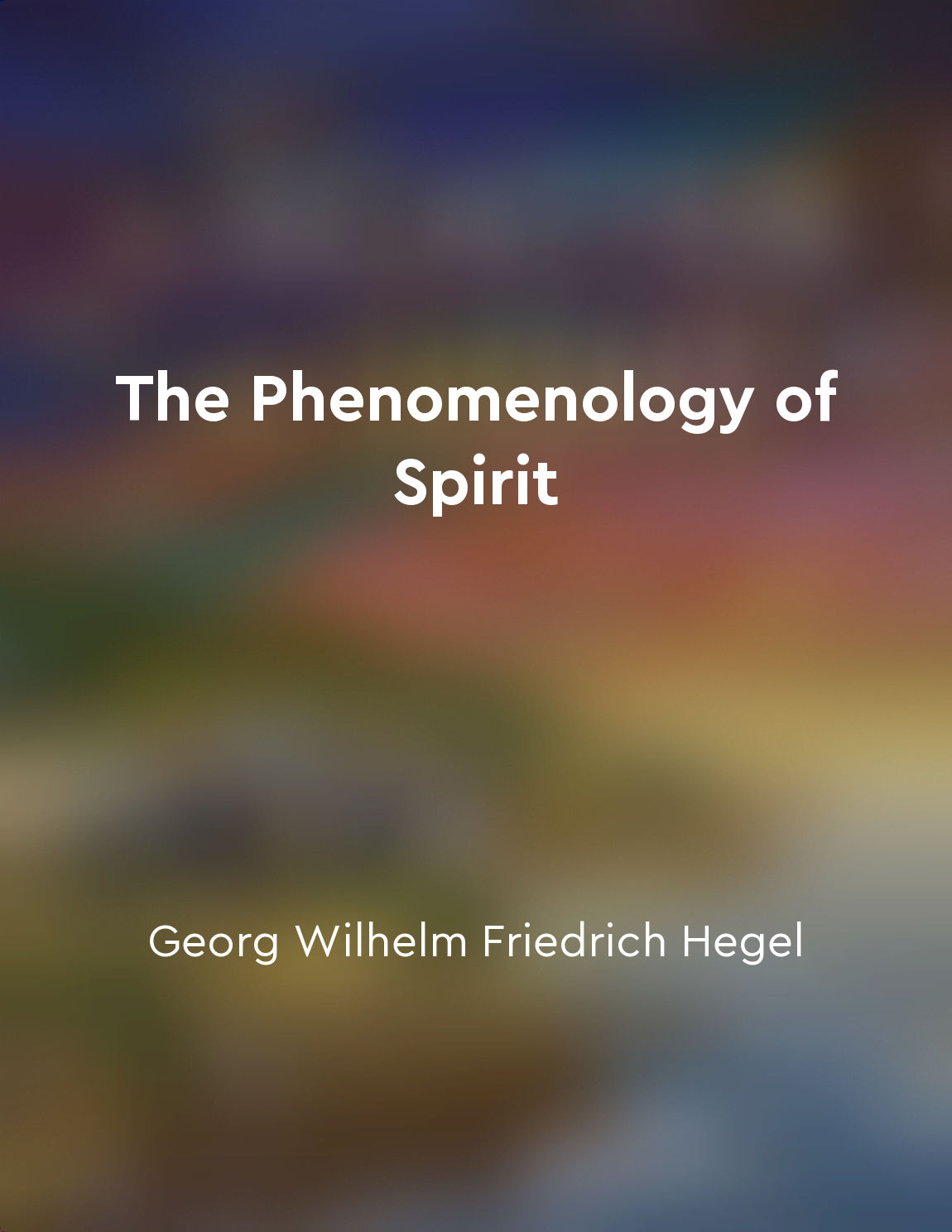Existentialism is a philosophy of action from "summary" of Being and Nothingness by Jean-Paul Sartre
Existentialism, at its core, is not a passive contemplation of existence but a philosophy that demands action. It is a call to engage with the world and take responsibility for our choices and their consequences. In "Being and Nothingness," Sartre emphasizes that existence precedes essence, meaning that we are defined by our actions rather than any predetermined nature or essence. For Sartre, human beings are condemned to be free, which means that we are constantly faced with the burden of making choices without any predetermined guidelines to follow. This freedom can be overwhelming and anxiety-inducing, but it is also what gives our lives meaning and significance. We are not bound by any external factors or predetermined meanings; instead, we create our own values through our actions. To truly embrace existentialism, one must recognize that every action has consequences and that we are responsible for those consequences. This idea of radical responsibility is central to Sartre's philosophy, as it emphasizes the importance of taking ownership of our choices and their outcomes. Inaction or passivity is not an option in existentialism; we must actively engage with the world and make deliberate choices to define ourselves. Sartre argues that we are defined by our actions, not by our thoughts or intentions. While thoughts and feelings are important aspects of human existence, they are ultimately secondary to the concrete actions we take in the world. It is through our actions that we reveal our true selves and create our own unique identity. Existentialism challenges us to confront the absurdity and meaninglessness of existence and to create our own meaning through our actions. By embracing our freedom and taking responsibility for our choices, we can transcend the limitations imposed on us by society or the external world. In the face of a universe devoid of inherent meaning, existentialism offers a path to personal agency and self-creation.Similar Posts
Interplay between mathematics and literature
The intertwining of mathematics and literature is a theme that runs throughout "The Unimaginable Mathematics of Borges' Library...
Iqbal's philosophy is rooted in Islamic thought
Iqbal's philosophy is deeply intertwined with Islamic thought, drawing inspiration and guidance from the rich tradition of Isla...
Education should foster individuality
Education should foster individuality by recognizing the uniqueness of each person's mind and spirit. This means that educators...
Metaphysics must question the ground of beings
Metaphysics, as a discipline, is tasked with probing the fundamental nature of existence itself. It is concerned with delving i...

True freedom lies in selfacceptance and self-actualization
True freedom, according to Nietzsche, is not merely the absence of external constraints or limitations, but rather a state of i...
The pursuit of wisdom remains a central human endeavor
The pursuit of wisdom is an age-old quest that has driven human beings to seek knowledge and understanding since the dawn of ci...

Society often imposes false absolutes on individuals
Society tends to create rigid categories and fixed labels that individuals are expected to conform to. These absolutes are ofte...

Alienation and reconciliation
Alienation is the state in which the individual feels disconnected from themselves, from others, and from the world around them...
Embracing absurdity allows for creation of own meaning in life
In the face of the absurdity of existence, one must embrace the inherent meaninglessness of life. This acceptance of the absurd...
